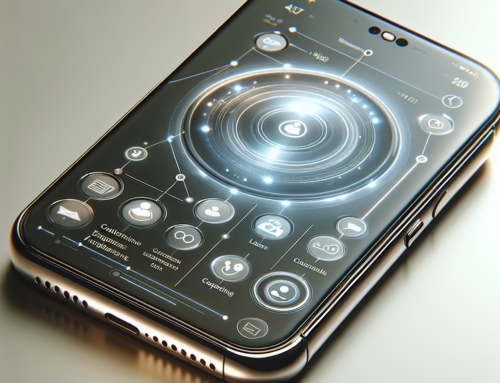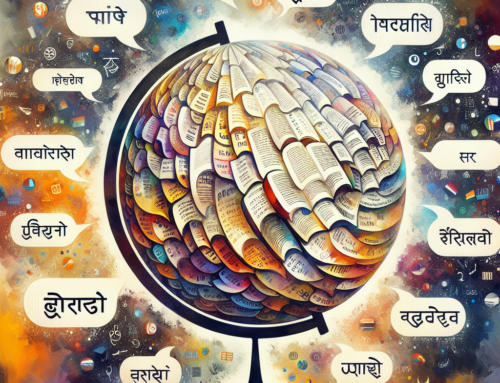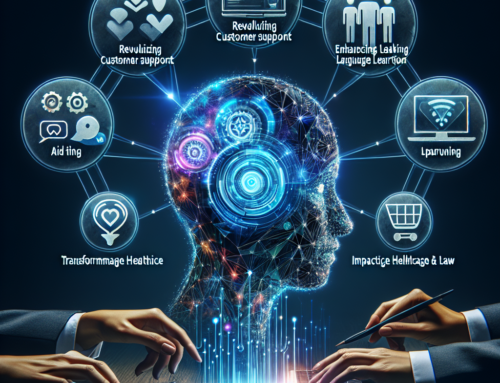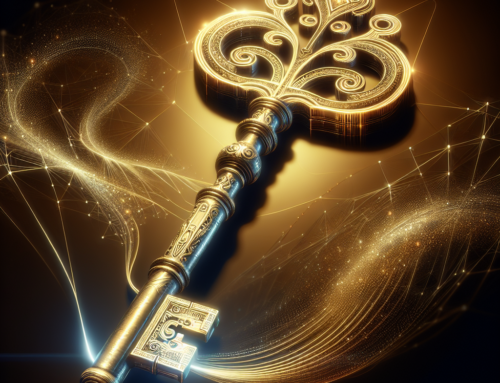In the “An Updated ChatGPT AI with Expanded Knowledge Cutoff” video by AI Andy, he discusses several intriguing updates and advancements in the world of AI. First, the ChatGPT AI has received an update, expanding its knowledge cutoff to April 2023, making it more up-to-date and capable of providing relevant information. Additionally, a developer was able to create an Angry Birds game using ChatGPT and MidJourney without any coding experience, showcasing the incredible potential of AI. The video also highlights the generation of an impressive number of 3D objects by AI, as well as various other topics such as Scarlett Johansson’s legal action against an AI app cloning her voice, Instagram’s development of an AI friend for users to chat with, Quora’s Po ChatBot paying creators, and the ability of AI to diagnose Type 2 diabetes through voice analysis. The video is packed with fascinating and thought-provoking content from the ChatGPT subreddit, providing a diverse range of AI-related topics and discussions.
This image is property of i.ytimg.com.
The Updated ChatGPT AI
Expanded Knowledge Cutoff to April 2023
The ChatGPT AI has recently received an update that expands its knowledge cutoff to April 2023. Previously, the knowledge cutoff was in October 2022, so this update brings the AI up to date with more recent information. This is a significant improvement as it allows the AI to provide more accurate and current responses to user queries.
With this extended knowledge cutoff, users can now ask the AI about recent events and trends that have occurred after October 2022. For example, I asked ChatGPT to list ten recent catastrophes that have happened after 2022, and it was able to provide me with accurate information for each one. This shows that ChatGPT is becoming more up-to-date and can keep users informed about the latest news and events.
In addition, the update also suggests that users update their jokes because they might still be stuck in 2015. This highlights how the ChatGPT AI not only has access to more recent information but also has the ability to provide users with relevant and timely recommendations.
Developing Games with ChatGPT and MidJourney
Creation of an Angry Birds Game without Coding Experience
One of the impressive applications of ChatGPT and MidJourney is the creation of a fully functional Angry Birds game by someone with no coding experience. This showcases the power and versatility of these AI technologies in enabling individuals to bring their creative ideas to life without the need for extensive programming skills.
A developer named Javy Lopez took to Twitter to share his experience of creating the Angry Birds game using ChatGPT and MidJourney. He mentioned that he had never coded before, but with the help of these AI tools, he was able to develop the game from scratch. The graphics were created using MidJourney’s Dolly 3, while the coding was done using ChatGPT.
Lopez explained that he started with simple elements and gradually added more features and fixed issues along the way. He also shared the prompts and the process he followed, making it accessible for others who may be interested in developing their own games without coding.
This example demonstrates how AI technologies like ChatGPT and MidJourney can democratize game development by empowering individuals without coding experience to create their own games and unleash their creativity.
AI’s Impressive 3D Object Generation
AI’s Ability to Generate a Large Number of 3D Objects
AI has made significant advancements in the field of 3D object generation. One notable example is Stability AI, which has developed tools for generating 3D objects quickly and effectively. This advancement in AI-generated 3D objects has the potential to revolutionize various industries, such as gaming, animation, and virtual reality.
With Stability AI’s automatic and streamlined process, non-experts can now generate draft-quality 3D models in minutes. By simply selecting an image or illustration or even writing a text prompt, the AI can deliver the desired 3D object as an obj file. These files can then be further processed in software like Blender, Maya, or game engines like Unreal Engine or Unity.
This breakthrough in AI-generated 3D objects eliminates much of the complexity and time-consuming nature of traditional 3D modeling, making it accessible to a wider range of users. It opens up possibilities for professionals and enthusiasts alike to create stunning 3D visuals without the need for extensive technical knowledge.
The ability of AI to generate a large number of 3D objects efficiently has the potential to drive innovation and creativity in industries that rely heavily on visual elements. It empowers creators to bring their ideas to life and pushes the boundaries of what is possible in the realm of 3D design.
Scarlett Johansson’s Legal Action
AI Cloning Her Voice in an Ad
Legal Dispute and Lawsuit
Scarlett Johansson, a prominent Hollywood actress, is currently involved in a legal dispute regarding the unauthorized use of her voice in an AI-generated advertisement. The ad in question is for an AI image editor called Lisa AI ’90s Yearbook and Avatar.
The advertisement features an AI-generated version of Johansson’s voice, where she promotes the capabilities of the AI image editor. The ad transitions between the AI-generated voice and the actress’s voice, creating a seamless experience that might lead viewers to believe that Johansson’s voice was used with her consent.
Johansson’s attorney has spoken out about the issue, stating that they do not take such matters lightly and will pursue all legal remedies available to them. Similar cases have surfaced in the past, where artists such as Drake and Tom Hanks have taken action against the unauthorized use of their voices in AI-generated content.
This legal dispute highlights the ethical and legal implications surrounding the use of AI to clone or replicate the voices of individuals without their permission. It raises questions about the boundaries of intellectual property rights and the responsibility of developers and platforms in ensuring proper consent and attribution.
As AI technology advances, it is crucial to establish clear guidelines and regulations to protect the rights of individuals and prevent unauthorized use of their voices or likenesses. The outcome of this legal dispute will likely have far-reaching implications for the industry and shape future practices regarding the use of AI-generated content.
This image is property of images.unsplash.com.
Instagram’s AI Friend for Chatting
Creation of an AI Friend for Users
Reported Development by Instagram
Instagram, a popular social media platform, is reportedly working on the development of an AI friend that users can chat with. Screenshots shared by app researcher Alesandro Paloi suggest that Instagram aims to create a virtual companion that can answer questions, engage in challenges, brainstorm ideas, and more.
During the creation process, users would be able to customize their AI friend by selecting its gender, ethnicity, and up to two personality traits from options like reserved, enthusiastic, creative, witty, pragmatic, and empowering. Users can also choose specific interests for their AI friend, such as DIY or entertainment.
The development of an AI friend on social media platforms raises both exciting possibilities and potential concerns. On one hand, it can provide users with an interactive and engaging experience, offering companionship and entertainment. It can serve as a virtual assistant and a source of information.
On the other hand, there are concerns about the potential for manipulation and exploitation. When users interact with an AI, there is a risk of mistaking it for a real human and forming emotional connections. This vulnerability opens the door for unethical use of AI to deceive or harm users through manipulation and misinformation.
Therefore, it is crucial for platforms like Instagram to ensure transparency and educate users about the AI nature of these interactions. Clear guidelines and safeguards should be in place to protect users’ privacy, prevent misuse of personal data, and address potential ethical issues that may arise.
Quora’s Po ChatBot Paying Creators
Po ChatBot’s Policy Update
Payment to Creators for Their Contributions
Quora’s Po ChatBot has recently introduced a new policy update that enables creators to be paid for their efforts. The Creator Program is designed to compensate bot creators for their contributions, including those who generate prompt bots on Quora itself, as well as server bots created by developers who integrate their bots with Po AI.
Creators participating in the program have two ways to monetize their chatbots. Firstly, if a chatbot leads a person to subscribe to Po, the creator will receive a cut of the subscription fee. This incentivizes creators to design engaging and useful chatbots that attract users to subscribe.
Secondly, creators can set a limit on their chatbot and get paid for every message that surpasses that limit. This payment structure ensures that creators are rewarded for the value they provide and encourages them to continually improve and expand the capabilities of their chatbots.
The introduction of this Creator Program is an exciting development as it recognizes the contributions of bot creators and provides them with a monetary incentive to continue innovating and refining their chatbots. It also showcases the growing recognition of AI-generated content and the value it brings to users.
As the program is currently only open to creators in the United States, it will be interesting to see how it evolves and expands to include creators from other regions. The potential for creators to earn income through their chatbots opens up new possibilities for individuals interested in AI development and entrepreneurship.
This image is property of images.unsplash.com.
AI Diagnosing Type 2 Diabetes
Ability of AI to Diagnose Diabetes by Analyzing Voice
Potential Impact on Healthcare
Researchers have made strides in utilizing AI technology to diagnose type 2 diabetes by analyzing a person’s voice. In a recent study, an AI model was trained to recognize 14 vocal differences in the voice of individuals with type 2 diabetes compared to those without diabetes.
The study involved 79 women and 113 men who recorded a specific phrase six times per day for two weeks, resulting in a total of 18,000 recordings. The AI model analyzed these recordings and was able to accurately identify individuals with type 2 diabetes in just 6 to 10 seconds.
This breakthrough has the potential to significantly improve the efficiency and accessibility of diabetes diagnosis. Traditional methods of detection often require extensive time, travel, and cost, making it challenging for individuals to receive timely diagnoses. Voice analysis technology eliminates these barriers, providing a faster and more cost-effective alternative.
The researchers believe that AI-based voice analysis has the potential to revolutionize healthcare by lowering the cost and improving the accessibility of diabetes diagnosis. It has the potential to enhance early detection and intervention, leading to better management of the disease and improved outcomes for patients.
However, it is important to note that while AI-based diagnostics show promise, they should not replace professional medical evaluations. They should be seen as complementary tools that can aid healthcare professionals in providing accurate and timely diagnoses. Ethical considerations, data privacy, and the need for rigorous validation are crucial aspects that need to be addressed as this technology progresses.
Improving ChatGPT Prompts
Hack for Better Prompts using Two-Word Prompts
Enhancing ChatGPT’s Responsiveness
ChatGPT has become a popular tool for generating text-based responses, but sometimes users may find it challenging to get the desired output. However, there is a hack that can significantly improve the responsiveness and effectiveness of ChatGPT prompts – using two-word prompts.
By structuring prompts in the form of two-word phrases, users can achieve better results and elicit more accurate and contextually relevant responses from ChatGPT. The two-word prompt format provides a concise and specific instruction to the AI, increasing the chances of obtaining the desired information or response.
For example, instead of asking a broad question like “What is the meaning of life?” which may yield vague or philosophical answers, using a two-word prompt like “Define existence” or “Purpose of living” can provide more focused and informative responses.
This hack highlights the importance of precision and specificity in generating effective prompts for AI models like ChatGPT. Tailoring prompts to be more concise and contextually relevant can enhance communication with AI and improve the overall user experience.
It is worth noting that while this hack can improve the performance of ChatGPT, it may not guarantee perfect responses every time. The AI model’s capabilities and limitations should be considered, and users should exercise critical thinking and discernment when interpreting AI-generated content.
This image is property of images.unsplash.com.
EaseUS: Sponsor of the Video
Offering Various Voice Types for Applications
WhatsApp and Discord Integration
The video featuring the ChatGPT AI and its various applications is sponsored by EaseUS, a company that offers a wide range of voice types for applications like WhatsApp and Discord. EaseUS provides users with a diverse selection of voice options to enhance their messaging and communication experiences.
With over 100 voice types to choose from, EaseUS allows users to personalize their voice messages and add a unique touch to their conversations. This integration with popular messaging platforms like WhatsApp and Discord enables users to utilize these voice types seamlessly within their preferred communication apps.
EaseUS’s sponsorship of the video demonstrates the increasing importance of enhancing user experiences through voice customization and personalization. It showcases the potential impact of AI-driven advancements in voice technology in making messaging and communication more engaging and enjoyable.
Integrating voice customization into messaging apps has the potential to revolutionize communication by adding a new layer of expression and creativity. It enables users to convey their messages with a touch of personality and individuality, enhancing the overall quality of communication.
Conclusion
The ChatGPT AI has received an update, expanding its knowledge cutoff to April 2023, allowing users to access more current information. This update showcases the AI’s ability to stay up-to-date and provide accurate responses.
The development of an Angry Birds game without coding experience using ChatGPT and MidJourney highlights the democratizing potential of AI in game development.
AI’s impressive ability to generate a large number of 3D objects, as demonstrated by Stability AI, opens up new possibilities in industries like gaming and animation.
Scarlett Johansson’s legal action against an AI app for cloning her voice in an ad raises important questions about intellectual property rights and the ethical use of AI-generated content.
Instagram’s reported development of an AI friend for chatting holds promise for interactive and engaging user experiences, but precautions are necessary to ensure transparency and protect users.
Quora’s Po ChatBot now paying creators for their efforts through its Creator Program offers a new way for individuals to monetize their chatbot creations.
The AI’s capability to diagnose type 2 diabetes by analyzing voice presents a breakthrough in healthcare, offering a faster and more accessible method of diagnosis.
Improving ChatGPT prompts using two-word prompts enhances its responsiveness and effectiveness, facilitating better communication between users and the AI.
EaseUS’s sponsorship of the video highlights the potential of voice customization and integration with messaging apps to enhance user experiences and communication.
In conclusion, the ChatGPT AI continues to evolve and demonstrate its versatility and potential in various fields, pushing the boundaries of what AI technology can achieve. It raises important ethical considerations and opens up new opportunities for innovation and creativity.










Leave A Comment